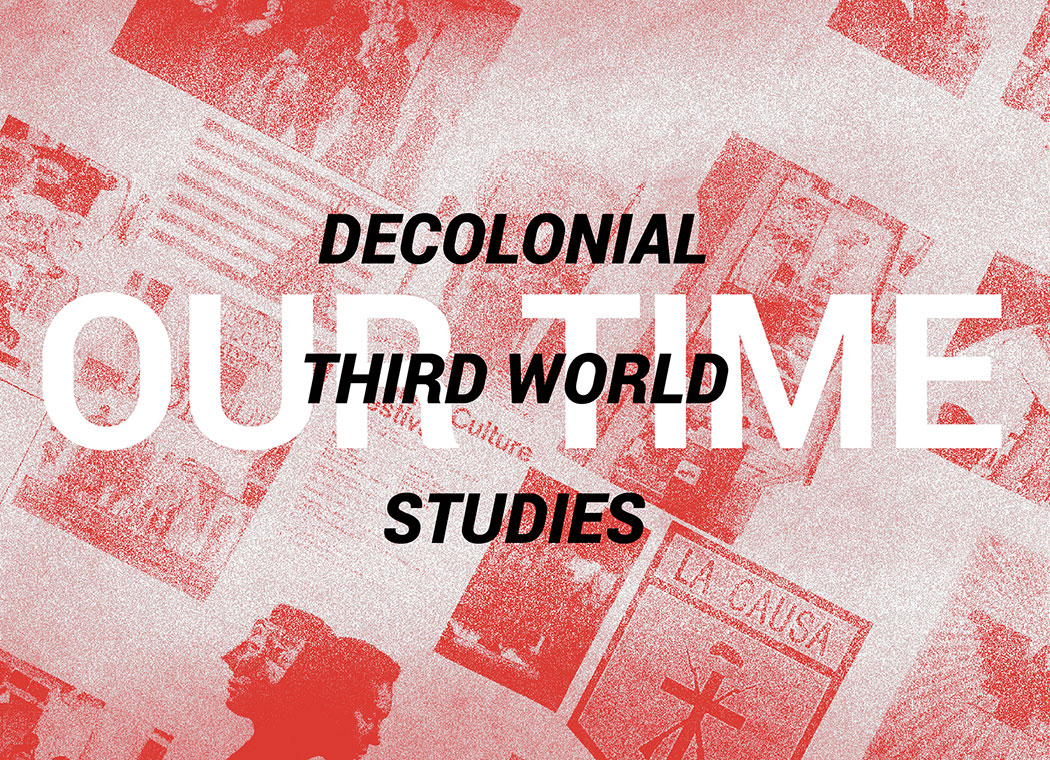
Thursday October 25, 2018
Panel Discussion: 7:00–8:30 PM*
*Pre-Event: 6:15 PM Exhibition Walk-thru with artist Antonio Serna
Loisaida Inc.
710 East 9th Street, New York, NY (google map)
Panelist:
Macarena Gomez-Baris
J. Kēhaulani Kauanui
Conor Tomás Reed
Moderator:
Patrick Jaojoco
Since the 1960s, students of color have fought to decolonize campuses across the Americas. One of their goals was to introduce studies related to their own experiences and include their history outside of the dominant Eurocentric lens. We will discuss some of the original demands and achievements, and compare them to the current wave of decolonizing academia.
Secondly, one of main concerns in the project Our Time is to highlight the racism in the arts as affecting all people of color across America. We ask, what can we gain from a comparative ethnographic analysis of this history? What are the limits and pitfalls of such study? How does it affect the visual arts and visual cultural studies in general (framework of research, production, participation, and consumption)?
As a third discussion point, we will consider spaces of resistance, noting Esteban Izquierdo Mejia’s intro to Spaces of Cultural Resistance that is similarly echoed in Macarena Gomez-Barris’ intro to The Extractive Zone. Can we consider examples of the importance of spaces of resistance (decolonial or otherwise) that, as Mejia notes, “operate to create imagined geographies of belonging that challenge the effects of cultural oppression at the local and regional level?”
This panel is held in conjunction with “Documents of Resistance: Our Time” Antonio Serna’s exhibition and residency at The Loisaida, Inc. Center, September 14–October 28, 2018.
– – –
Panelist Bios
Macarena Gomez-Barris is Chairperson of the Department of Social Science & Cultural Studies and Director of the Global South Center (GSC) at Pratt Institute. The GSC is a space for critical inquiry that centers experimental modes of thinking, being and doing. Macarena is author of three books including The Extractive Zone: Social Ecologies and Decolonial Perspectives that theorizes social life, art, and decolonial praxis through five extractive scenes of ruinous capitalism upon Indigenous territories (Duke University Press, 2017). Macarena’s recent book Beyond the Pink Tide: Art and Political Undercurrents in the Americas (UC Press 2018) asks us to imagine politics beyond the nation state. She is also author of Where Memory Dwells: Culture and State Violence in Chile (2009), and co-editor with Herman Gray of Towards a Sociology of a Trace (2010). Macarena is working on a new book project called At the Sea’s Edge. She writes and teaches on social and cultural theory, decolonial thought, racial and extractive capitalism, social movements, queer and submerged perspectives, critical Indigenous studies, experimental film, and environmental disasters and social transformation. She was Fulbright Research Visiting Professor at Department of Sociology and Gender FLACSO-Quito, 2014-2015.
J. Kēhaulani Kauanui is Professor of American Studies and affiliate faculty in Anthropology at Wesleyan University, where she teaches courses related to Indigenous studies, critical race studies, settler colonial studies, and anarchist studies. She is the current Chair of American Studies and the current Director of the Center for the Americas. Her first book is Hawaiian Blood: Colonialism and the Politics of Sovereignty and Indigeneity (Duke University Press 2008) and her second book is Paradoxes of Hawaiian Sovereignty: Land, Sex, and the Colonial Politics of State Nationalism (Duke University Press, 2018). She also has a new edited book, Speaking of Indigenous Politics: Conversations with Activists, Scholars, and Tribal Leaders. Kauanui currently serves as a co-producer for an anarchist politics show called Anarchy on Air/Horizontal Power Hour a majority POC show co-produced with a group of Wesleyan students, which builds on her earlier work on another collaborative anarchist program called “Horizontal Power Hour.”
Conor Tomás Reed is an archivist, doctoral student, educator, and organizer at the City University of New York, a collective member of Lost & Found: The CUNY Poetics Document Initiative (The Center for the Humanities), and a co-founding participant in the Free University – NYC. Conor researches twentieth and twenty first-century literatures of social movements and urban freedom schools, and is a 2016-2017 Scholar-in-Residence at the Arthur Schomberg Center for Research in Black Culture. Conor is currently working on his dissertation: CUNY Will Be Free!: Black, Puerto Rican, and Women’s Compositions, Literatures, and Studies at the City College of New York and New York City, 1960-1980.
Patrick Jaojoco is a Brooklyn-based arts professional, curator, researcher, and writer focusing on political ecology and historiography, in particular how creative practices and landscape interpretation can aid in public understanding of long-term ecological, economic, and political histories. He has organized numerous exhibitions and public programs throughout New York; recently, he worked with the curatorial collective Frontview on a project around American pre-colonial, colonial, and cartographic histories and practices. He currently works at Storefront for Art and Architecture where Patrick supports the organization’s exhibitions and projects as Development and Communications Associate. Patrick was a 2015-2017 Curatorial Fellow at SVA’s MA Curatorial Practice program, and received his BA in English Literature and Environmental Studies from New York University.
– – –
Support for Documents of Resistance: Our Time is made possible in part with public funds from Creative Engagement, supported by the New York City Department of Cultural Affairs in partnership with the City Council and administered by Lower Manhattan Cultural Council and the New York City Department of Cultural Affairs’ Development Fund.
